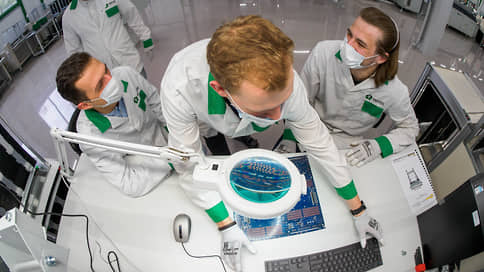Kazakh, Armenian and Hong Kong banks block payments from Russian legal entities
[ad_1]

Due to the risk of sanctions, Armenian, Kazakh and Hong Kong banks began to block payment for servers, microcircuits, processors, telecom equipment and other electronics for legal entities from Russia. Suppliers are trying to import electronics under other commodity codes, and are also looking for alternative payment methods. The tightening of export controls by friendly countries may lead to a shortage of such products in the Russian Federation for six months, experts fear.
Sources of Kommersant in the electronics market said that in the past two weeks, they have increasingly encountered cases when Kazakh, Armenian and Hong Kong banks block payments from Russian legal entities under the code of the commodity nomenclature of foreign economic activity (TN VED) 8542, which includes processors, microcircuits etc. This is due to the introduction of the tenth package of US sanctions that threaten banks cooperating with the Russian Federation, explains one of Kommersant’s interlocutors. Restrictions apply, among other things, to any provision of funds, goods or services in favor of or from a blocked person (see “Kommersant” dated February 24).
According to a Kommersant source, as a result, Russian companies will have to import components necessary for the production of computers, servers, data storage systems (SHD) and other equipment, under “alternative” TN VED codes (the interlocutor of Kommersant does not specify which ones) .
Or, he adds, “we will have to supply the equipment as a whole in the assembly.”
Another Kommersant source close to the government added that the blocking of payments also occurs for the supply of the latest generation of telecommunications equipment, as well as storage systems and servers. The Ministry of Industry and Trade did not answer Kommersant. The Central Bank explained that “compliance procedures for specific foreign banks depend on their internal policies and in different periods can be characterized by varying degrees of rigidity.”
Back in mid-April 2022 in an interview RBC Armenia’s Minister of Economy Vahan Kerobyan said that Armenian banks “carefully monitor not to fall under sanctions.” A year later, the Georgian bank TVS began to notify customers that it could block their account if transactions were detected that were related to circumventing sanctions against the Russian Federation. After the outbreak of hostilities in Ukraine, two Armenian electronics dealers, Taco and Milur Electronics, have already been blacklisted by the United States.
“Some colleagues have encountered problems paying for components and other electronics through Hong Kong banks,” said Vitaly Mankevich, head of the Russian-Asian Union of Industrialists and Entrepreneurs (RASPP). According to him, partners from Hong Kong say that “the situation with payments is difficult and is associated with sanctions pressure.” The laws of Hong Kong, adds Mr. Mankiewicz, are quite strict in this regard, they are tougher, for example, than in Macau.
For the 84th and 85th groups of TN VED, the compliance control of banks has long been strengthened, problems can arise with almost any group of goods, for example, with printers, one of Kommersant’s sources clarifies, but “so far this is happening selectively and unpredictably.”
According to him, not all Armenian or Hong Kong banks block payments, and the suppliers themselves are starting to use “other methods of making payments” (he did not disclose details).
Usually, payment for goods is made using commercial letters of credit, which indicate the purpose of payment, the interlocutor of Kommersant among bankers explained: “Money is reserved on the account for the delivery of certain goods and written off after delivery. If the product is sanctioned, the money will not be booked.”
Another source added that banks “manually check” all payments from the Russian Federation.
Kazakh banks have also tightened control over transactions for sanctioned products, including electronics, says Georgy Vlastopulo, CEO of the Optimalog logistics company: “It is impossible to purchase components, spare parts, computers, etc. directly from the manufacturing country, but through third countries — everything is more and more difficult, so in six months or a year we may face a shortage of sanctioned products.” On May 10, Kommersant reportedthat due to the tightening of control over the supply of electronics through Kazakhstan, distributors began to change routes, laying them through China, Kyrgyzstan and the United Arab Emirates. But this increases the cost of technology.
[ad_2]
Source link





